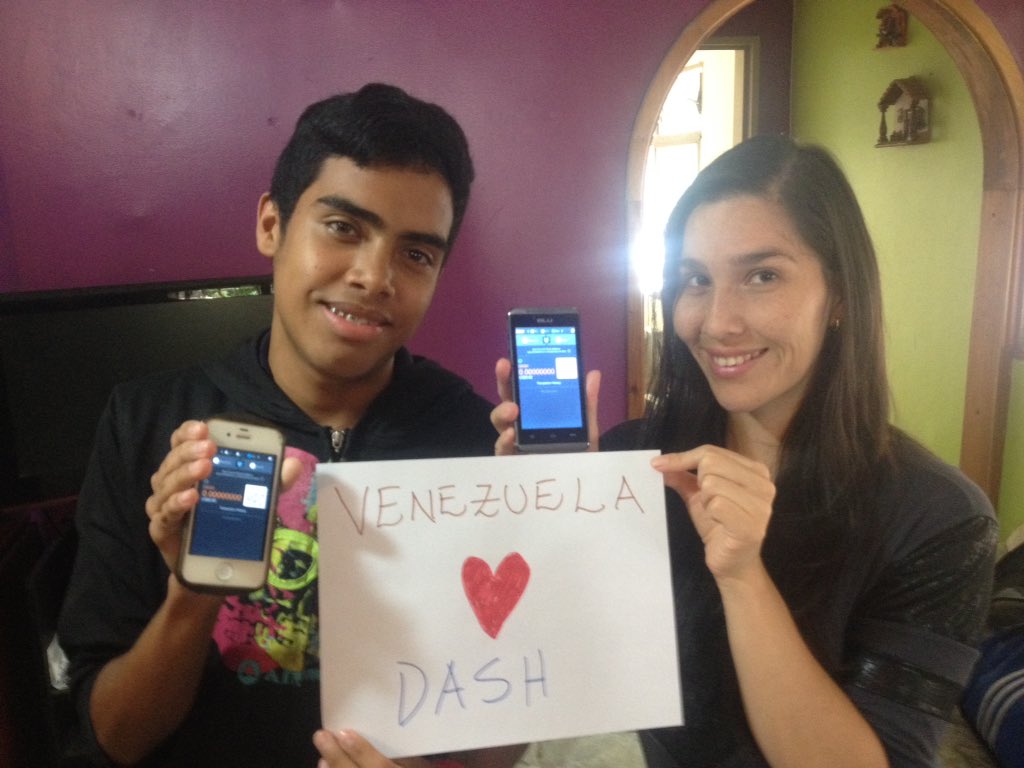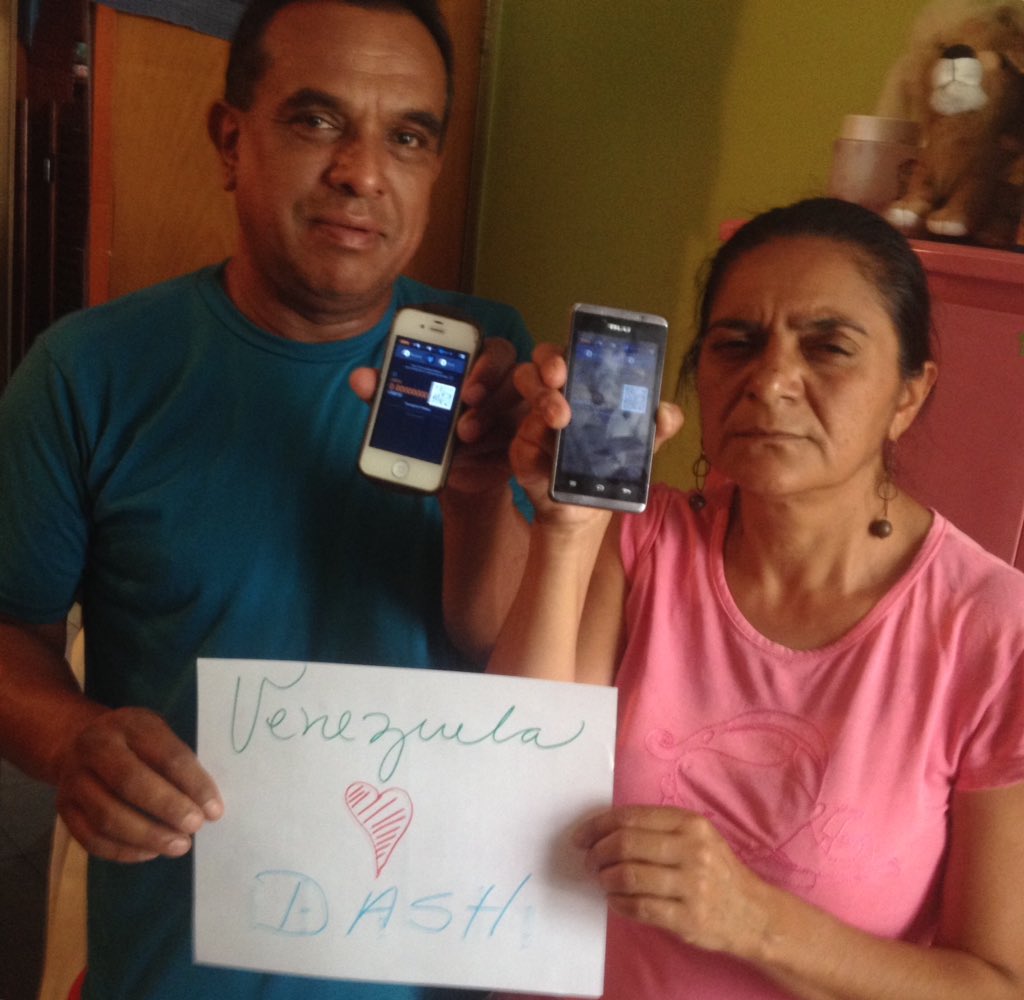https://www.bloomberg.com/news/arti...eking-a-haven-in-crypto-coins-as-crisis-rages
by
Camila Russo
June 15, 2017, 6:00 PM GMT+8
Crypto coins’ gyrations require nerves of steel, but to an increasing number of Venezuelans, they’re the safest currency they can own.
Demand for digital coins is soaring in Venezuela amid an escalating political crisis that has protesters demanding that President Nicolas Maduro step down. Inflation has spiraled to the triple digits, debasing the bolivar and depleting savings, while citizens struggle to find everything from food to medicine on store shelves.
third-largestdigital coin by number of transactions. “We’re seeing huge demand in Venezuela through inquiries in our support line, as more and more people join our forums and chat rooms, even on how-to Youtube videos that have popped up.”

Bitcoin trading volume in Venezuela jumped to $1.3 million this week, about double the amount that changed hands two months ago, according to LocalBitcoins.com, an online exchange which allows users from across the world to swap their local currencies to bitcoin. Users in Venezuela for Cryptobuyer, a platform for bitcoin and Dash trading, jumped to 8,000 last month from 6,000 in the previous month, a record increase, the exchange’s CEO Jorge Farias said.
Venezuela’s currency has become nearly worthless in the black market, where it takes more than 6,000 bolivars to buy $1, while bitcoin surged 53 percent in the past month alone. But it’s not just about shielding against the falling bolivar, as some Venezuelans are using crypto currencies to buy and sell everyday goods and services, Farias said.
To read more on street protests in Venezuela.
“Venezuelans use these alternatives not only to safeguard their savings, but also to be able to operate in daily business and commerce,” Farias said in an email. Digital currencies are “an alternative to entrepreneurs and people who lack the means to buy and sell not only merchandise but services, and to send and receive remittances.”
The market is still small though, and far from providing a viable way for Venezuela’s 31 million citizens to escape the current turmoil. Only 62 percent of the population had an Internet connection as of 2015, according to the CIA Factbook, and over 80 percent live below the poverty line.
Digital coins as a way to escape currency controls and inflation isn’t a new phenomenon. Argentina saw a spike in bitcoin trading after former President Cristina Fernandez de Kirchner banned dollar purchases, and China is one of the main sources of bitcoin demand as traders use the digital currency to skirt capital controls.
The London School of Economics created a Bitcoin Market Potential Index based on technology penetration, inflation and financial repression and found that the two countries with the highest BMPI were Argentina and Venezuela, as of last year. Argentina removed currency controls, but inflation is still above 20 percent.
“It’s in these locations where the incentives to go into digital currencies is the strongest,” Dash’s Taylor said. “We’re seeing a lot of growth in the region.”
by
Camila Russo
June 15, 2017, 6:00 PM GMT+8
Crypto coins’ gyrations require nerves of steel, but to an increasing number of Venezuelans, they’re the safest currency they can own.
Demand for digital coins is soaring in Venezuela amid an escalating political crisis that has protesters demanding that President Nicolas Maduro step down. Inflation has spiraled to the triple digits, debasing the bolivar and depleting savings, while citizens struggle to find everything from food to medicine on store shelves.
third-largestdigital coin by number of transactions. “We’re seeing huge demand in Venezuela through inquiries in our support line, as more and more people join our forums and chat rooms, even on how-to Youtube videos that have popped up.”

Bitcoin trading volume in Venezuela jumped to $1.3 million this week, about double the amount that changed hands two months ago, according to LocalBitcoins.com, an online exchange which allows users from across the world to swap their local currencies to bitcoin. Users in Venezuela for Cryptobuyer, a platform for bitcoin and Dash trading, jumped to 8,000 last month from 6,000 in the previous month, a record increase, the exchange’s CEO Jorge Farias said.
Venezuela’s currency has become nearly worthless in the black market, where it takes more than 6,000 bolivars to buy $1, while bitcoin surged 53 percent in the past month alone. But it’s not just about shielding against the falling bolivar, as some Venezuelans are using crypto currencies to buy and sell everyday goods and services, Farias said.
To read more on street protests in Venezuela.
“Venezuelans use these alternatives not only to safeguard their savings, but also to be able to operate in daily business and commerce,” Farias said in an email. Digital currencies are “an alternative to entrepreneurs and people who lack the means to buy and sell not only merchandise but services, and to send and receive remittances.”
The market is still small though, and far from providing a viable way for Venezuela’s 31 million citizens to escape the current turmoil. Only 62 percent of the population had an Internet connection as of 2015, according to the CIA Factbook, and over 80 percent live below the poverty line.
Digital coins as a way to escape currency controls and inflation isn’t a new phenomenon. Argentina saw a spike in bitcoin trading after former President Cristina Fernandez de Kirchner banned dollar purchases, and China is one of the main sources of bitcoin demand as traders use the digital currency to skirt capital controls.
The London School of Economics created a Bitcoin Market Potential Index based on technology penetration, inflation and financial repression and found that the two countries with the highest BMPI were Argentina and Venezuela, as of last year. Argentina removed currency controls, but inflation is still above 20 percent.
“It’s in these locations where the incentives to go into digital currencies is the strongest,” Dash’s Taylor said. “We’re seeing a lot of growth in the region.”




